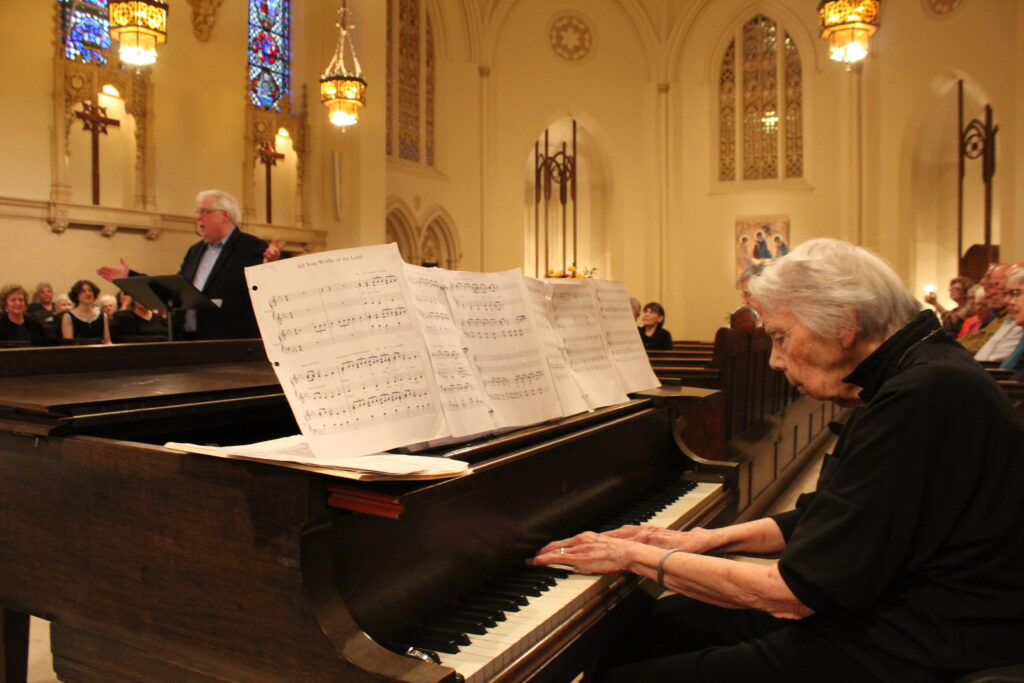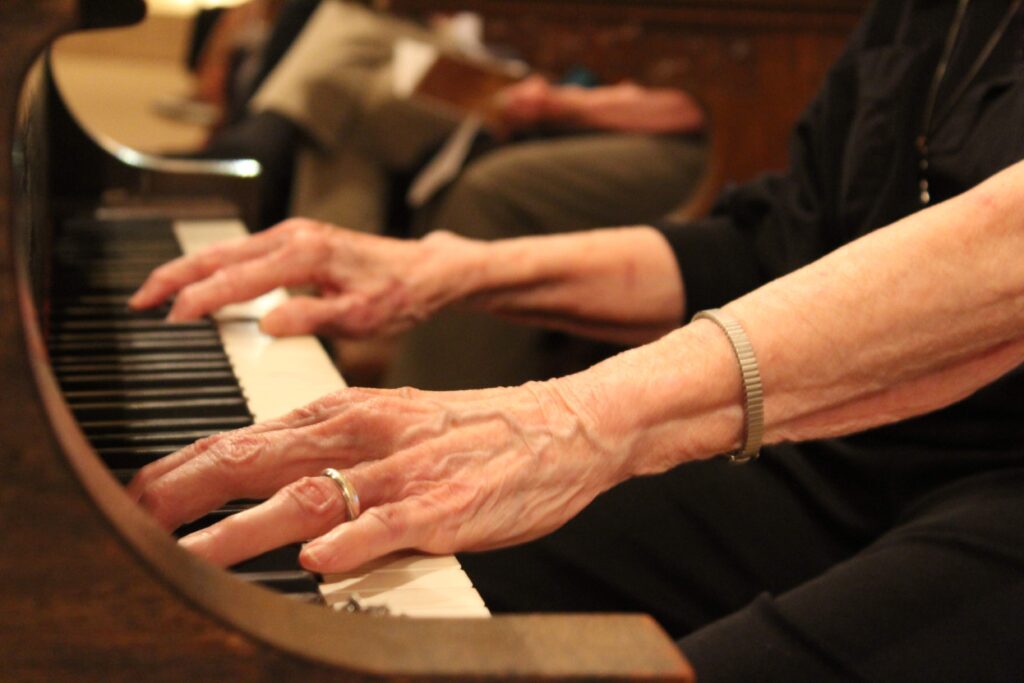By Liz Dossa
In honor of Sister Suzanne Toolan’s approaching 94th birthday and the 55 years since she composed the seminal hymn, “I Am the Bread of Life,” Mercy is publishing a reflection she wrote recently on the piece’s composition and reception, along with the following introduction, to set the context.
Sister Suzanne Toolan published “I Am the Bread of Life” in 1966, soon after Vatican II shifted the celebration of Mass and singing of hymns from Latin to the vernacular. The change from a liturgy in Latin was huge. As a choral director and liturgist, Suzanne knew congregations needed encouragement to sing. She intended to write a memorable piece with a refrain—although, as she now says of the composition, “It’s difficult to sing.”
Difficult or not, “I Am the Bread of Life” became wildly popular. The National Association of Pastoral Musicians founder, Father Virgil Funk, calls it “the most significant piece of music before Michael Joncas [the composer best known for “On Eagle’s Wings”]. It became the most sung piece of music of the time.” The resurrection in her text infuses people with hope. Her work was part of the movement of church music from the mysterious and comforting dark of Latin to the light of the vernacular.

Suzanne saw the hymn, then, as combining a horizontal sense of God’s presence in the community of the faithful with a vertical sense of the individual relating to God. Later, to be more inclusive, she changed the pronouns from “him” to “them” and, at the funeral of a woman, to “her.” It has been sung all over the world in many denominations and in many languages.
In this and other hymns she has written over the years, Suzanne has drawn on the strengths of religious community and reflected them back through the prism of her talents. Her star has been bright, lighting the way for contemporary music and prayer.
A conservative commentator once took direct aim at “I Am the Bread of Life,” and Suzanne hasn’t forgotten—although perhaps she has forgiven him.
Suzanne’s reflection on that experience follows.
‘That dreadful hymn’ Is a Gift of Grace
By Sister Suzanne Toolan
My feelings were hurt for a few moments when I first saw these (or similar words) about “I Am the Bread of Life.” I can’t remember the words exactly, and I am certainly not hurting anymore. They were printed by a distinguished gentleman who lamented the fact that the Feast of Corpus Christi was almost ruined for him because “they” would almost certainly sing THAT hymn.
It wasn’t a problem because I had heard it before. The objection to the hymn was that we, the gathered assembly, were attributing these words to ourselves. We had the audacity to think that WE are the Bread of Life.
Didn’t these objectors realize that we KNEW it was Jesus saying this and not us? Looking back on the history of sacred music, didn’t they know it was common practice for composers to set sacred texts to music in this way?
Now, so many years later, I am able to ask: Can I—can we—say, “I—we—are the Bread of Life?” Are we who are Christ’s Body not meant to be bread for one another?
I’m remembering another hymn I wrote: “We are your eyes to see that there’s but one great family…we are your ears to hear the children’s cry of every race…” We might add words such as, “We are the bread that gives life and health to those in need…”

When I wrote “I Am the Bread of Life,” it was to be sung at a Eucharistic event for our diocese. To be specific, it was for the Benediction of the Blessed Sacrament. Benediction was a service of adoration of the Blessed Sacrament, a revered practice in our tradition and a service we still honor. The emphasis in the service is on adoration. But Jesus didn’t say, “Take and adore,” he said, “Take and eat.”
In our Archdiocese of San Francisco, there are those who fear we are neglecting the honor due the Blessed Sacrament. They prefer the Latin because they believe it surrounds the Sacred Mystery more reverently. Some think that by using the term “banquet” for the Eucharist, we somehow diminish our posture of reverence.
Well, Jesus said, “I am the bread of life,” and we are called to come and eat and to share. Our lives are at the service of the Gospel. God has given us this gift of grace.
For more of Suzanne’s writings, visit her blog, Toolan Tales.